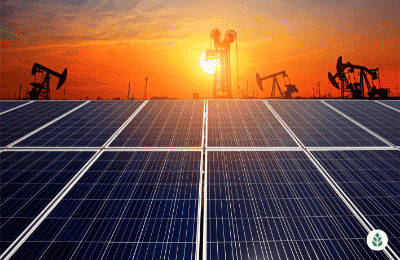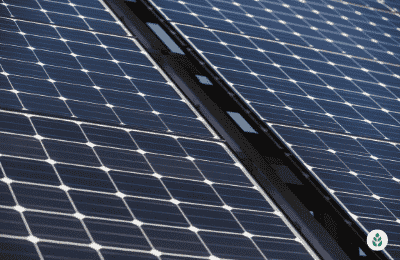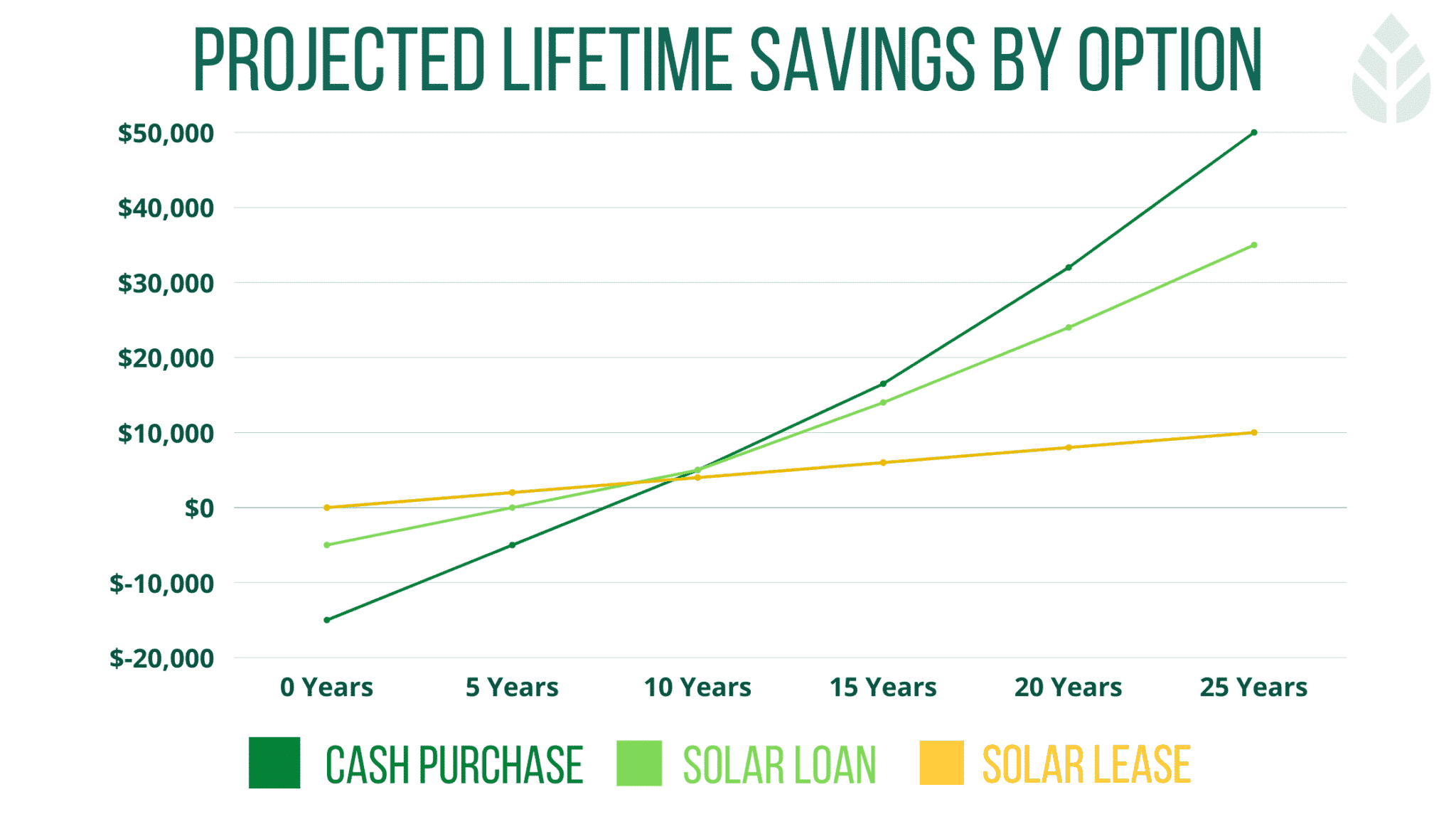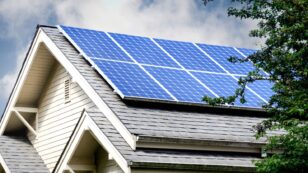
Is Solar Worth It in Maryland? (2024 Homeowner's Guide)
In this guide, you’ll learn:
- How can Maryland homeowners determine if solar is worth it?
- What are the main benefits of solar panels in Maryland?
- What should Maryland homeowners look out for when going solar?
Each product and or company featured here has been independently selected by the writer. You can learn more about our review methodology here. If you make a purchase using the links included, we may earn commission.
Is Maryland Good for Solar Energy?
Maryland ranks 19th in the country for solar conversions, but the state’s solar panel installation price is higher than most other areas throughout the country. This leaves Maryland residents wondering if solar is a good option for their homes.
With an abundance of sun and very favorable solar policies statewide, Maryland is generally a great place to install and benefit from solar conversions, and most customers see their panels pay for themselves in utility bill savings and then save an additional $34,212.
Below, you’ll find an in-depth guide on how to determine if solar panels are a good investment for your home. We’ll include some information on the benefits of going solar in MD, as well as some things to consider throughout the process to ensure you have a positive experience overall.

Lumina Solar
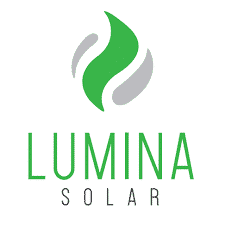
Regional Service
Average cost
Pros
- Comprehensive service offerings
- Offers products from leading manufacturers
- NABCEP-certified technicians
Cons
- Relatively young company
- Slightly limited service area

Blue Raven Solar
Pros
- Industry-leading in-house financing
- Competitive pricing
- Excellent reputation
Cons
- Doesn't offer solar batteries (coming 2022)

Trinity Solar

Regional Service
Average cost
Pros
- Many financing options
- Family-owned and -operated
- Makes charitable contributions
- Relatively short workmanship warranty
Cons
- Limited service area
Watch Below: Learn Which Solar Incentives to Claim in Maryland To Maximize Savings
How Can You Figure Out if Solar Panels Are Worth It In Maryland?
Most Maryland residents will benefit from installing solar panels and ultimately save quite a bit of money — over $34,000 — from the energy savings they provide. However, not every home is suitable for solar conversion, so you need to figure out if yours is before committing to this renewable energy source. Below are some factors you should consider that can help you decide if solar is right for you.
- Your home’s energy use
- Cost of going solar in Maryland
- Average payback period in Maryland
- Average buy-back rates in Maryland
- Your roof’s exposure to the sun
- Climate for solar in Maryland
Your Home’s Electricity Consumption
Solar panels provide more value overall in areas where energy needs or electricity rates are high.
Maryland electricity rates are less than the national average, sitting at 16.05 cents per kWh as opposed to the national average of 16.79 cents. Maryland residents only use slightly more electricity than the typical American, consuming 957 kWh per month as opposed to the average of 881 kWh. You can check your consumption averages on your past electric bills.
In a broad sense, solar panels are considered a valuable addition to most homes that consume more than 500 kWh in an average month. Most Maryland homes consume much more than that, so unless your energy needs are far lower than the average in your area, your home will likely be a good fit for solar in terms of consumption alone. Keep in mind, though, that there are other factors to consider.
Cost of Solar in Maryland
The price of solar panels in Maryland averages around $3.37 per watt, which is above the national average of $3.33 per watt.
Most Maryland residents need a 10-kW solar power system to offset their energy bills — as opposed to the national average of 9 kW — and end up paying around $33,700 before the federal tax credit, or $23,590 after the credit is taken into consideration.
The viability of solar for your home mostly depends on the balance between your energy expenditure — which is slightly above average in Maryland — and the total installation price — which is below average in Maryland. As such, Maryland is generally better suited for solar installation than most other states.
Average Solar Payback Period in Maryland
One of the most useful metrics for determining the value of solar for your property is the estimated solar panel payback period, which is the time it will take for offset energy rates provided by your panels to pay for the entire system.
The average payback period in Maryland is 11 years, which is right in line with the national average. Most MD homeowners pay their systems off with savings between 8 and 14 years.
Using a solar calculator or having a reputable solar installer estimate your payback period will determine not only how long it will take you to recuperate what you spend on your system but also your expected savings long term. After the panels pay for themselves, you’ll enjoy additional savings for the rest of the 25+ years of expected system performance.
The average total savings after the payback period in Maryland is $34,212 (these are NET savings). If your payback period is longer than 14 years, your total return on investment (ROI) will be lower.
Average Solar Buy-Back Rates in Maryland
In an effort to incentivize solar conversion, many states have mandated net metering or an energy buy-back program.
Through interconnection via your inverters, these programs let you generate more energy than you use and sell the excess to your utility company to offset energy bills. This is especially useful for reducing charges for electricity pulled from the grid when your panels underproduce electricity, like at night or on cloudy days.
Maryland has an excellent net metering program that not only guarantees access to net metering but also sets the buy-back rate at the retail rate. This is huge for Maryland homeowners and makes eliminating electric bills far easier.
We should mention that net metering programs have been getting worse throughout the U.S. In 2024, California, which has been the most solar-friendly state in the country for decades, rolled out NEM 3.0, which cut the net metering credit rate by around 75%. That made solar panels by themselves far less valuable and reduced long-term savings significantly. While there is currently no set plan for this to happen in Maryland, we do expect something similar to happen in all states over time.
If and when that does happen, solar batteries will become much more valuable and may even become a necessity in Maryland if you want to see a good ROI. Batteries increase your installation costs by between $10,000 and $20,000 in most cases, so a system that sees a high ROI is going to be less accessible if NEM goes away. However, you should still save a significant amount of money in Maryland even if you do have to pay for batteries alongside your panels.
Your Roof’s Exposure to the Sun
Solar panels only generate electricity when they receive sunlight, which means the more sunlight your roof receives, the more energy you produce, and the more you stand to save on your utility bills.
Maryland as a whole experiences 202 sunny days per year, which is just below the national average of 205. In general, this makes Maryland a good area for solar panel installation.
However, you’ll need to assess your individual property for sun exposure. First, you should look at the direction your roof faces, as south-facing roofs are the best in the US, and west-facing roofs are sometimes acceptable. Shading on your property from trees, buildings or other structures can also make solar less valuable for your home, as they block sunlight that could otherwise be used to produce electricity.
Solar Outlook in Maryland
Maryland is generally considered a very solar-friendly state. It ranks 18th in the nation for solar conversion rates, and this is largely due to the pro-solar policies. The State of Maryland has set a Renewable Portfolio Standard (RPS) goal of producing 50% of its energy via clean energy sources by 2030, and solar is a big part of reaching that goal.
With the statewide solar incentives being very appealing, residential solar installations have grown considerably in popularity over the past decade, and the market for solar equipment is expected to continue to expand. In theory, this expansion will lead to lower prices for photovoltaic PV equipment and more accessibility.
Remember, though, that NEM is being downgraded in other states, and solar adoption might see a dip if the same happens in Maryland.
What Are the 4 Main Benefits of Going Solar in Maryland?
Homeowners who convert to solar power in Maryland will enjoy quite a few benefits, including several financial upsides. We’ll include some information on the most appealing solar benefits below.
- Electricity bill savings
- Lower taxes and access to other incentives
- Increased home value
- Eco-friendly
Electricity Bill Savings
Most prospective solar customers understand that the most significant benefit to going solar is the savings they’ll experience on their energy bills, but many don’t realize quite how much they can save. The average Maryland resident saves around $34,212 by converting to solar energy, and that’s after the panels pay for themselves.
Those savings come from maximizing your electricity bill savings. It’s calculated by taking the average monthly electric bill in Maryland — $153.60 per month — multiplying by 12 to get potential annual savings — $1,843.20 per year in Maryland — and then multiplying by 25 years, which is the minimum amount of useful life you’re expected to see from your panels. Savings could be even higher if you go with a high-quality panel brand that lasts even longer.
Additionally, installing solar panels on your home means you’ll be less dependent on your electric company for the 25+ years your panels are expected to last. Energy prices have only gone up throughout history, so you will likely be able to avoid additional price hikes in the future by converting to solar.
Lower Taxes & Access to Other Incentives
While going solar provides plenty of benefits by itself, the state and federal governments provide Maryland residents with some solar incentives to make converting even more appealing.
One of the most substantial tax incentives is the federal solar tax credit, commonly referred to as the ITC. This is a credit to your federal income tax liability for 26% of your entire installation expenses. In Maryland, the ITC averages around $10,110.
Homeowners looking for additional solar incentives in Maryland will be pleased to find some others offered by the state:
- Net Metering: As mentioned above, net metering is mandated throughout Maryland for all utility companies, and the state sets the rate at which you’re credited for excess energy at the retail rate. This is about the best you can ask for in terms of net metering.
- Residential Clean Energy Rebate Program: This is a solar rebate program that offers a $1,000 rebate for installing solar systems. The program also includes a $500 rebate for solar water heater installation.
- Sales Tax Exemption: To reduce the total expense of going solar, Maryland waives sales tax on all solar equipment and installation fees, which saves most homeowners hundreds of dollars.
- Property Tax Exemption: Solar panels boost your home value, and normally, this would lead to your property taxes going up. Maryland provides a property tax exemption to prevent taxes from increasing as a result of solar panel installation.
- Maryland Energy Storage Income Tax Credit: For Maryland homeowners who want to install a solar battery to increase savings and provide electricity through outages, this income tax credit can provide up to 30% of the expense of solar energy storage to your income taxes.
Home Resale Value Increase
One enormous benefit that many prospective solar customers forget to consider is that solar panels increase your property value.
According to estimates from Zillow, the average home will jump in value by around 4.1%.3 Given the average home value in Maryland of $402,625, most homeowners will see around $16,507 in added value.4
It’s important to note that you need to buy your panels outright or use solar financing to enjoy this benefit. Solar leases and power purchase agreements (PPAs) will not provide the same value increase.
Clean, Renewable Energy
Of course, not all benefits you’ll get from going solar will be financial incentives. Converting to clean energy also reduces how much pollution your home contributes to the environment.
You’ll also reduce your reliance on fossil fuels when you convert to solar power and your carbon footprint. You’ll make your home more energy independent, which means you’ll be less reliant on traditional utility companies.
What Should Maryland Homeowners Look Out For When Considering Solar?
While going solar is largely beneficial for most homeowners in Maryland, there are a few things you should keep in mind as you convert to solar energy. We’ll discuss these additional considerations below to help you get the best conversion experience possible.
- Upfront fees
- Payback periods
- Net metering policies
- Outlook on solar policies and incentives
- Weather and climate
- Companies that push financing options that don’t help you maximize your ROI
Upfront Fees
The upfront fees of going solar is always an important thing to think about, and this is especially true in areas like Maryland, where the average per-watt price for solar equipment is higher than the national average. You can keep your upfront investment to a minimum by avoiding add-on solar equipment like electric vehicle chargers and solar batteries, opting for a solar loan that doesn’t require money down and choosing a cheaper brand of solar panel for your solar project.
Payback Period
Your estimated solar panel payback period can tell you a lot about how valuable solar is for your home. It can predict how long your panels will take to recuperate your investment and the average ROI you’ll enjoy after the panels are paid off.
Most Maryland customers have a payback period between 8 and 14 years. If yours is longer than 14 years, you can expect your ROI to be lower overall, although the solar energy system will still likely save you money.
Net Metering Policies in Maryland
Maryland has an outstanding net metering policy that mandates the program for all solar customers and ensures you get paid the retail rate for all excess energy you send to the grid.
You should still check your electric company’s net metering policy, as some will pay you for any unused energy at the end of your billing period. If that’s the case, you could get paid by your electricity provider rather than the other way around.
We always recommend checking with your electricity provider and your installer to see what your access to net metering looks like before you convert to solar. These policies change all the time, and a lower credit rate will almost always yield much less impressive long-term savings.
Pending Policies & Changes to Incentives
It’s important to remember that the incentives and policies mentioned above are always subject to change as the solar industry expands and improves. While waiting for better incentives to come along isn’t usually a good idea from a savings perspective, you should check for updates to policies, new rebate programs and incentives that pop up or disappear.
Weather & Climate in Maryland
Solar panels are most valuable in areas with the most abundant and direct sunlight, meaning states closer to the equator are ideal. However, Maryland is generally still a great option despite its northern location.
Maryland is prone to hurricanes, tropical storms and other severe weather patterns, so many residents worry that there isn’t enough sunlight to make solar panels worth it. Rainy and cloudy days will undoubtedly lead to days of inefficient power production.
However, the state receives just under the national average number of sunny days per year, which means there’s typically enough sun to offset the dip in production during inclement weather.
As far as the above-average rainfall goes, rain will serve to keep your panels clear of dust, dirt and debris, which promotes high efficiency during sunny weather. The threat of extreme weather can be mitigated by opting for an extensive and robust warranty.
Companies Pushing Solar Leases or PPAs
Finally, it’s worth noting that not all solar companies are equal, and you need to be on the lookout for less reliable installers.
One of the most common signs that a company isn’t acting in your best interest is that they advertise “free panels,” which is a marketing tactic to get you to sign a solar lease or power purchase agreement (PPA). Solar leases typically aren’t a great option, as they save you less money over time, prevent you from taking the federal tax credit and don’t bump up your home value.
Unfortunately, there have been reports of solar scams and disingenuous solar companies in Maryland. Several reports include mentions of Vivint Solar and other companies that claim affiliation with local utility companies in an effort to get homeowners to sign leases.5 It’s crucial that you always work with a vetted and reputable solar installer to ensure you don’t fall victim to scams.
So, Will Solar Be Worth it for Your Maryland Home?
In the large majority of cases, solar panel installation is well worth the investment in Maryland, especially because the policies and incentives available in the Old Line State make solar such an affordable and accessible option. With that being said, solar isn’t right for everyone, so you’ll have to determine if your home is a good candidate before converting.
You’ll need to consider several things in the process, including your estimated solar panel payback period, the upfront fees of the system you need to be installed, the energy efficiency of your home, shading on your property, the direction your roof faces, your monthly energy consumption and more.
We recommend getting in touch with a reliable and experienced solar installer to help you decide if going solar is a viable and worthwhile option for you.
See also: See how much you can save by going solar with the EcoWatch Solar Calculator
Read More About Going Solar in Maryland
- What Are the Best Solar Companies in Maryland?
- What Solar Incentives Are There in Maryland?
- How Much Do Solar Panels Cost in Maryland?
- Homeowner’s Guide to Solar Panels in Maryland
The cost information presented in this article is derived from a comprehensive analysis, incorporating data from multiple industry sources. The average cost per watt per state was calculated based on figures from Consumer Affairs, Energy Sage, and Berkeley Lab’s Electricity Markets & Policy Department. Additionally, monthly energy consumption and the average monthly cost of electricity were sourced from the U.S. Energy Information Administration, ensuring a well-rounded and accurate representation of the information presented.
Frequently Asked Questions
The EcoWatch team is pleased to get questions from prospective Maryland solar customers on a daily basis about the value of panels and the process of converting. Below are some of the questions we see most often from homeowners in your area. If you have specific questions that aren’t answered here, reach out to our team of solar experts at solar@ecowatch.com.
The answer to this question is different for every homeowner, as the solar panel payback period depends on many factors. Your solar panel installation company will assess your monthly electric bills, the amount of sunlight your roof receives, your home’s orientation and size, and much more to calculate how long it will take for your panels to pay for themselves. The average payback period in Maryland is 11 years, with most homeowners paying them off between 8 and 14 years.
Generally speaking, yes, converting to solar energy will save you money over time. Solar panels typically pay for themselves — in around 11 years, in Maryland — and then provide additional energy savings for the remainder of their 25+ year lifespan. Homeowners in Maryland save an average of $34,212 after their solar panel systems pay themselves off.
Yes! As long as you use a cash purchase or solar loan to pay for your solar panels, they will bump up your home value by an average of 4.1%, or around $16,507 in Maryland, according to estimates from Zillow.
Yes, permits are required to install solar panels in Maryland. The permitting process might seem like unnecessary red tape, but it ensures that your home can support the weight of the panels and that connection to the grid is done safely. Your solar installer will typically handle the permitting process for you and include the price of the permits in your total installation expense.
You can install your own panels in Maryland, but it’s typically not recommended. DIY installations come with substantial risk, not only to your safety but also to your property and the solar equipment. We strongly recommend choosing a reliable solar installation company and letting them complete your home solar project for you.
Top Solar Installers in Maryland Cities
Comparing authorized solar partners
-
- Comprehensive service offerings
- Offers products from leading manufacturers
- NABCEP-certified technicians
- Relatively young company
- Slightly limited service area
A+Outstanding Regional Installer
Having trouble deciding? Click below and use our process to receive multiple quotes instead:

 233k
233k  41k
41k  Subscribe
Subscribe 


